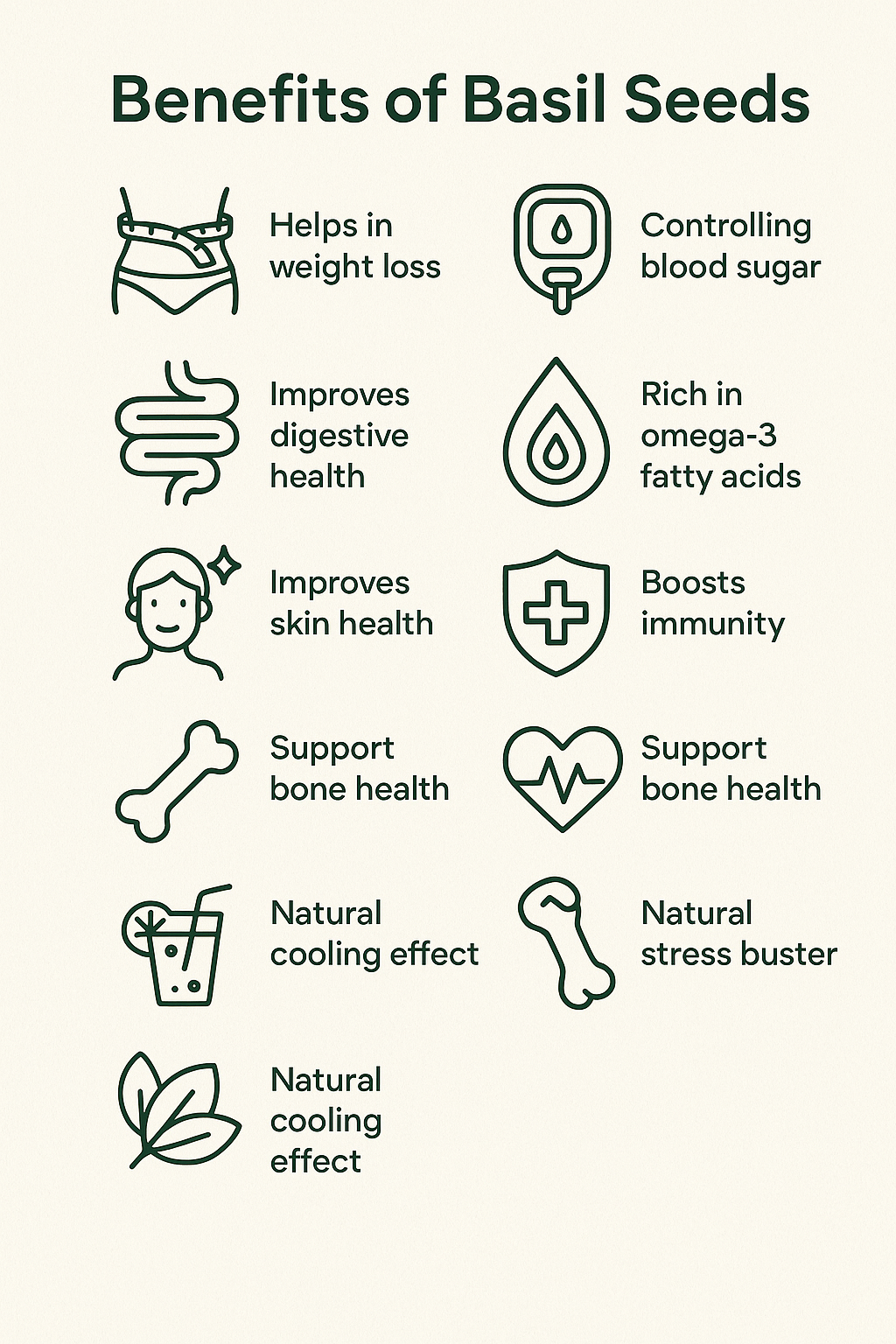Although managing diabetes might be difficult, blood sugar levels can be controlled with the correct food choices. Frequently misinterpreted, dry fruits for diabetes patients may be a filling and healthy complement to their diet. Rich in fibre, vital vitamins, and minerals, dried fruits may fulfil your sweet needs while offering a host of health advantages. This article talks about which dry fruits are good for diabetes.
Understanding Dry Fruits for Diabetics
What Are Dry Fruits?
Dry fruits are those that have undergone drying processes to remove the majority of their water content. The carbohydrates and minerals are concentrated, as a result of this process, giving them a rich energy source. Typical varieties of dried fruits are as follows:
1. Raisins: Sweet and chewy dried grapes.
2. Dates: Naturally sweet, nutrient-dense, and high in fibre.
3. Dried Figs: Chewy, soft fruits that are high in antioxidants and fibre.
4. Dried Apricots: Vitamins A and C-rich, sweet, and tart fruits.
5. Prunes: Known for digestive properties, they are also called dried plums.
Benefits of Dry Fruits for Diabetic Patients
1. Low Glycaemic Index (GI)
Due to their low to moderate glycaemic index (GI), a lot of dry fruits raise blood sugar levels more slowly and gradually. For diabetic individuals, this is essential since it keeps blood glucose levels steady. For instance, dates can vary but often lie within a modest range, while dried apricots have a GI of about 30.
2. Elevated Fibre Content
Dietary fibre, which is vital for digestive health, is abundant in dry fruits. Fibre helps avoid blood sugar increases by slowing down the absorption of sweets into the circulation. Prunes, for example, have a high fibre content, which makes them a great option for blood sugar regulation and encouraging regular bowel motions.
3. Density of Nutrients
Vitamins and minerals included in dry fruits are good for your general health. For instance: Apricots contain vitamin A, which is vital for healthy skin and eyesight.
Potassium: Found in dates and figs, potassium promotes heart health and blood pressure regulation.
Antioxidants: Found in a lot of dry fruits, antioxidants fight oxidative stress, which can lead to chronic illnesses.
4. Nutritious Snack Choice
Without the added sugars and bad fats included in many processed foods, dry fruits can satiate sweet cravings. They are a delightful and adaptable choice for diabetics because they may be eaten on their own or combined with other foods.
5. Cardiovascular Health
Almonds and walnuts are two examples of dry fruits that are high in heart-healthy fats. These nuts have the potential to lessen heart disease risk and bad cholesterol, which is especially beneficial for diabetics.
Best Dry Fruits for Diabetic Patients
1. Almonds for Diabetes
Rich in minerals, almonds can help control blood sugar levels. They are rich in protein, fibre, and good fats and low in carbs. Almond consumption can help individuals with type 2 diabetes achieve better glycaemic control, according to a study published in the journal Metabolism.
2. Walnuts for Diabetes
Omega-3 fatty acids, which are abundant in walnuts, are good for the heart. They also have anti-inflammatory and antioxidant qualities. Frequent walnut eating can lower the risk of diabetic complications and increase insulin sensitivity.
3. Pistachios for Diabetes
Another great option for diabetics is pistachios. They are high in fibre, protein, and good fats and have a low glycaemic index. According to studies, including pistachios in the diet helps lower blood sugar levels and enhance glycaemic management.
4. Cashews for Diabetes
When consumed in moderation, cashews are a tasty dry fruit. They contain a lot of magnesium, which is essential for the metabolism of glucose. Consuming cashews can help control blood sugar levels and enhance general well-being.
5. Dried Figs for Diabetes
In addition to being tasty and sweet, dried figs are also a great source of fibre, vitamins, and minerals. When taken in moderation, they might be an excellent choice for diabetics because of their moderate glycaemic index. Figs are also good for the digestive system.
6. Dried Apricots for Diabetes
Vitamin A and potassium are abundant in dried apricots. They are high in fibre and have a low glycaemic index. Consuming dried apricots can promote general health and help keep blood sugar levels steady.
7. Prunes for Diabetes
Because of their high fibre content, prunes are widely recognised for their digestive advantages. They can aid in blood sugar regulation and have a low glycaemic index. For those with diabetes who want to preserve their digestive health, prunes are a fantastic choice.
8. Raisins for Diabetes
When consumed in moderation, raisins are a handy and transportable snack. They can help strengthen the heart and are high in antioxidants. However, it's crucial to keep an eye on portion amounts because of their high sugar content.
Also read - Is It Beneficial to Consume Mixed Dry Fruits Every Day?
How to Add Dry Fruits into a Diabetic Diet?
Diabetes requires conscious eating habits, and dry fruits can play a key role in this. Opt for dry fruits with a low glycaemic index, such as prunes or dried apricots, and enjoy them in moderation to control blood sugar levels. Snack on almonds and walnuts, rich in healthy fats and essential nutrients, to curb hunger between meals. Adding chopped raisins, figs, or cashews to oatmeal or salads can enhance flavour and provide fibre. Combine dry fruits with yoghurt for a nourishing treat. Always watch portions and consult a dietitian to ensure they fit your individualized meal plan.
Diabetic-Friendly Dry Fruits Recipes
-
Prepare a diabetic-friendly dry fruit smoothie by blending unsweetened almond milk, a small banana, and a handful of soaked almonds, walnuts, and prunes.
-
For a quick snack, roast pistachios and cashews with a sprinkle of cinnamon and salt.
-
Try making energy bars by mixing dates, oats, and a pinch of cocoa powder into a paste, shaping them into bars, and refrigerating them.
-
Another idea is a dry fruit salad with dried apricots, raisins, and yoghurt topped with chia seeds.
Also read - The Top 10 Foods for Thyroid Health
Experiment with these simple recipes while keeping nutritional balance in mind for better glucose management without compromising on taste.
Dry fruits are not only nutrient-dense, but also a practical addition to a diabetic-friendly diet. Their fibre, vitamins, and minerals help manage blood sugar levels and satisfy cravings healthily. By incorporating dry fruits thoughtfully into meals and snacks, diabetic patients can enjoy their sweetness without risking glucose spikes. Moderation is key to optimizing their benefits while avoiding potential harm. Combining the right types of dry fruits with other low-GI foods ensures sustained energy and balanced nutrition. With creativity and guidance from a healthcare professional, dry fruits can become a valuable ally in managing diabetes effectively and deliciously.
FAQs
-
Can diabetics eat dry fruits every day?
Although it's crucial to consume them in moderation, diabetics may indeed have dry fruits in their diet. In general, a 1/4 cup portion size is advised to avoid blood sugar increases.
-
Are dried fruits better than fresh fruits for diabetics?
Fresh and dried fruits both offer health advantages, however, dried fruits are higher in calories and sugar. Due to their lower calorie density and higher water content, fresh fruits are typically favoured.




Leave a comment
All comments are moderated before being published.
This site is protected by hCaptcha and the hCaptcha Privacy Policy and Terms of Service apply.